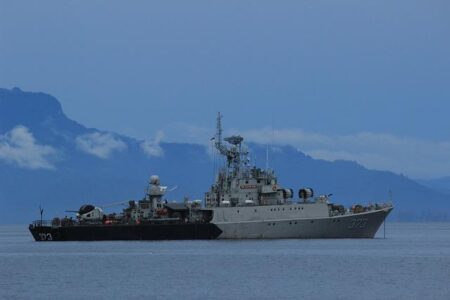French nuclear company Orano is set to face trial over its involvement in the 2010 hostage crisis in Niger, a case that has drawn international attention to corporate accountability in complex conflict zones. The upcoming legal proceedings mark a significant moment for the nuclear giant, which has long been a key player in uranium mining across Africa. This development comes amid broader concerns about security, corporate responsibility, and the risks faced by foreign workers operating in volatile regions. The trial will scrutinize Orano’s actions during the hostage incident that shocked the industry and highlighted the dangers surrounding resource extraction in Niger.
French Nuclear Company Orano Held Accountable in Niger Hostage Crisis
A landmark judicial decision is set to bring to court one of France’s nuclear industry leaders, Orano, in connection with the 2010 hostage ordeal in Niger. The trial centers on allegations that the company failed to adequately protect its staff during a terrorist abduction involving the militant group Al-Qaeda in the Islamic Maghreb (AQIM). This unprecedented move holds corporate actors accountable for security lapses in conflict-prone regions, raising critical questions about the responsibilities and liabilities of multinational corporations operating abroad.
Legal experts underline several key issues at stake in the upcoming proceedings:
- Duty of care: Whether Orano implemented sufficient security protocols for its personnel.
- Operational risk assessment: The adequacy of the company’s evaluation of threats in the Sahel region.
- Corporate responsibility: The broader implications for industry standards in hostile environments.
The case is expected to influence future policies regarding international corporate exposure to terrorism and may prompt tighter regulatory frameworks to safeguard employees in volatile zones.
| Aspect | Details |
|---|---|
| Year of Incident | 2010 |
| Location | Arlit, Niger |
| Captives | 7 Orano employees |
| Duration | Several months |
| Perpetrators | AQIM militants |
Legal and Ethical Implications of Orano’s Role in the 2010 Incident
Orano’s involvement in the 2010 hostage crisis raises profound questions about corporate accountability in conflict zones. Critics argue the company’s operational decisions may have indirectly contributed to the volatile situation by insufficiently addressing local security concerns and community relations. This has sparked debates around due diligence obligations under international law, particularly regarding the protection of employees and local populations in high-risk regions. The upcoming trial could set a precedent on how far companies must go to prevent and respond to hostage situations linked to their activities abroad.
Beyond legal questions, there are pressing ethical considerations, including:
- Responsibility to local communities: Was Orano’s engagement with Nigerien stakeholders adequate to mitigate risks?
- Transparency and crisis management: Did the company provide timely and truthful information to families and authorities?
- Corporate influence on regional stability: How do multinational resource extraction firms impact fragile governance environments?
| Aspect | Key Concern | Potential Impact | ||||||||||||||||||||||||||
|---|---|---|---|---|---|---|---|---|---|---|---|---|---|---|---|---|---|---|---|---|---|---|---|---|---|---|---|---|
| Legal Liability | Negligence in risk management | Financial penalties, reputational damage | ||||||||||||||||||||||||||
| Ethical Governance | Community consent and benefit-sharing | Improved relations, reduced conflict | ||||||||||||||||||||||||||
| Human Rights | Protection of hostages and staff |
Orano’s involvement in the 2010 hostage crisis raises profound questions about corporate accountability in conflict zones. Critics argue the company’s operational decisions may have indirectly contributed to the volatile situation by insufficiently addressing local security concerns and community relations. This has sparked debates around due diligence obligations under international law, particularly regarding the protection of employees and local populations in high-risk regions. The upcoming trial could set a precedent on how far companies must go to prevent and respond to hostage situations linked to their activities abroad. Beyond legal questions, there are pressing ethical considerations, including:
Key TakeawaysAs Orano prepares to face trial over its role in the 2010 Niger hostage crisis, this case marks a significant moment in the ongoing scrutiny of multinational corporations operating in volatile regions. The proceedings will not only examine the circumstances surrounding the ordeal but also raise broader questions about corporate responsibility and the protection of foreign nationals abroad. Observers and stakeholders alike await the trial’s developments, which could set important legal and ethical precedents for the industry. |




